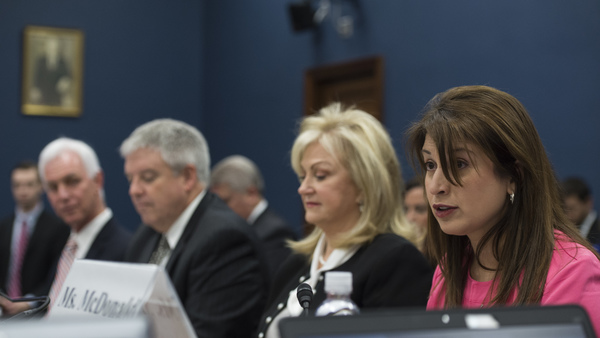
Small business lending is on the minds of credit unions and lawmakers this week in Washington, D.C.
On Thursday, Randolph-Brooks Federal Credit Union’s executive vice president/chief lending officer, Sonya McDonald testified on behalf of NAFCU in front of the House Small Business Subcommittee on Investigations, Oversight and Regulations. McDonald testified about the Small Business Administration’s 7(a) loan guarantee program and the value credit unions provide to our country’s small businesses.
The SBA’s 7(a) loan program is designed to encourage lenders to provide small business loans to those “that might not otherwise obtain financing on reasonable terms and conditions,” according to a Congressional report.
“SBA products allow us to leverage our lending dollars, mitigate the risk associated with the loans, and extend more credit to our communities’ small businesses,” said McDonald.
For McDonald, the SBA’s loan programs are a necessity for members of her credit union.
“In 2016, RBFCU was the No. 1 SBA lending credit union in our 55-county SBA district,” she says. She added that her members make a variety of SBA loan requests, from start-up franchises to business acquisitions and the purchase of owner-occupied real estate.
She said the credit union has provided SBA loans for as little as $15,000 to as much as $3 million.
In a statement released by NAFCU concerning the hearing, McDonald discussed issues with committee members such as the arbitrary, statutory cap on credit union member business lending. “Credit unions are limited in their member business lending to the lesser of either 1.75 times their net worth or 12.25% of total assets. Furthermore, business loans above $50,000 count toward this cap,” said McDonald.
McDonald also discussed with committee members the challenges that this cap has not been adjusted for inflation in more than 18 years and “greatly hamstrings a credit union’s ability to meet its members’ needs.”
According to a statement from NAFCU, government-guaranteed portions of SBA loans do not count toward credit unions’ member business lending cap, but the non-guaranteed portions do. “This could ultimately lead to a situation where a credit union may be an excellent, or even preferred, SBA lender and ultimately have to scale back participation in SBA programs as they approach the arbitrary cap,” said McDonald.
To read the full transcript of the hearing, provided by NAFCU, click here.


